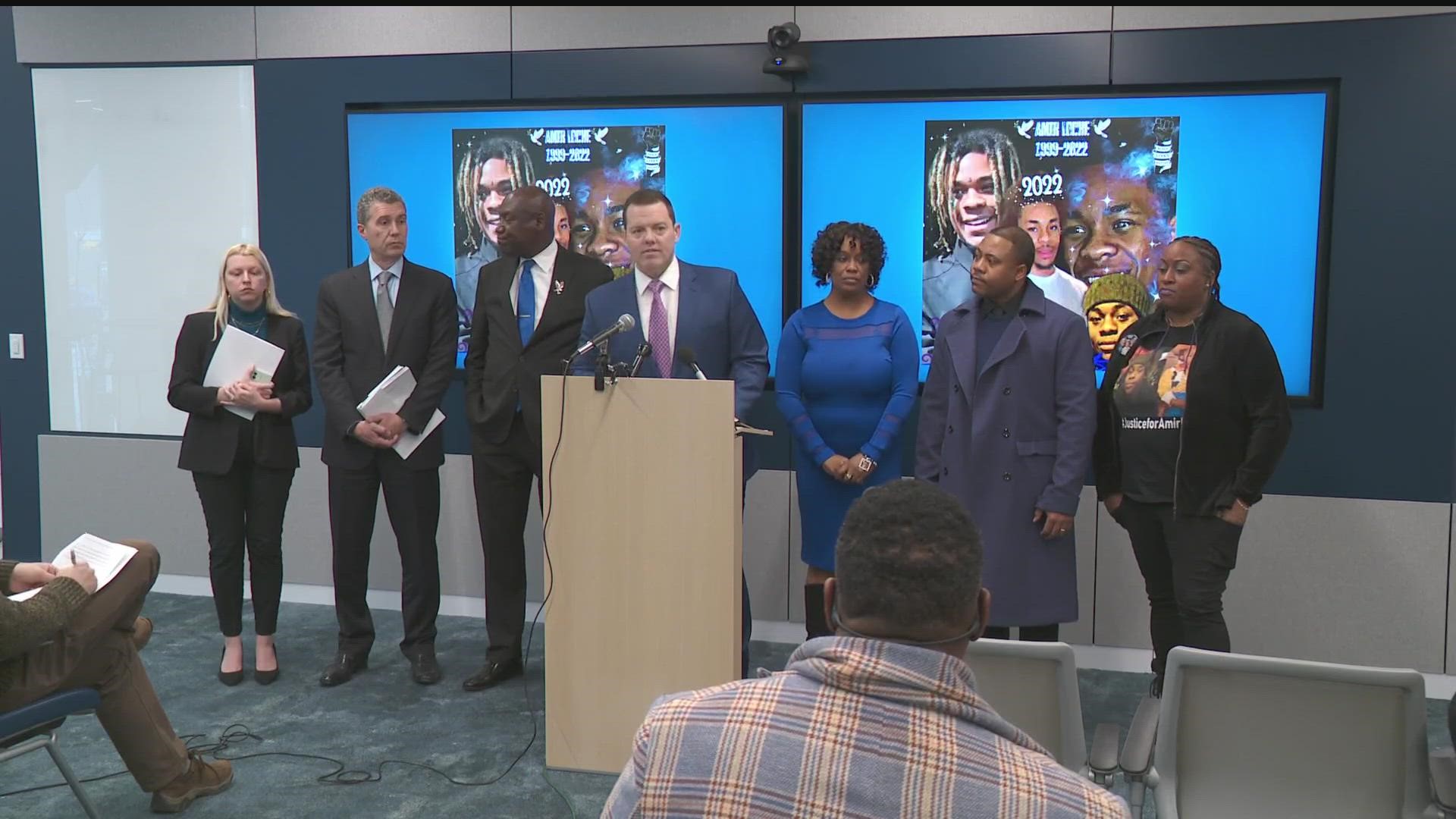MINNEAPOLIS — A lawsuit filed in U.S. District Court accuses a Minneapolis police officer and the city that employed him of violating Amir Locke's constitutional rights when he was fatally shot during the execution of a no-knock warrant and asks a federal jury to determine the damages to be awarded.
Locke's family announced the lawsuit Friday with help from civil rights attorneys Ben Crump, Antonio Romanucci and Jeff Storms. The suit alleges that Mark Hanneman, by firing the fatal shot, violated Locke's fourth and fourteenth amendment rights in an individual capacity, and alleges the city did so through its "unconstitutional customs, patterns, and practices."
"Amir Locke should not have died one year ago, and we will use this lawsuit to fight for justice and for much-needed change in the way Minneapolis trains its officers,” said Crump.
The Fourth Amendment protects against "unreasonable searches and seizures." The lawsuit details what the family's legal team describes as MPD's history of excessive force when executing no-knock warrants, saying Black residents and other people of color are particularly victimized.
“Minneapolis has a responsibility to its citizens to ensure police officers are properly trained and understand how to de-escalate interactions with civilians and value human life," said Storms. "This tragedy was avoidable if the City abided by its promise to cease performing these dangerous and unnecessary no-knock warrants. Shooting Amir under these circumstances, without warning or opportunity to comply, is unreasonable force under the Fourth Amendment.”
Court documents also allege a history of excessive force incidents against Black community members in Minneapolis, saying that while African Americans currently make up 19% of the city's population, 63% of use-of-force incidents involving MPD officers are against Black residents. The lawsuit also maintains that since 2010, 13 of 14 people killed by MPD officers are people of color or indigenous.
Locke's family also alleges that the city of Minneapolis should have known that Officer Hanneman was likely to commit misconduct or violate someone's constitutional rights, documenting complaints against him throughout his law enforcement career.
Finally, the lawsuit maintains that Locke handled his licensed handgun responsibly when he grabbed it after being jarred awake by SWAT officers, saying he kept his finger off the trigger and did not point the weapon or raise it in a threatening manner.
The documents allege that Hanneman or any officer failed to tell Locke to drop his weapon, and that the officer fired three shots immediately after yelling "Show me your hands" at Amir.
“Our hearts are broken, and there is nothing in the world that will make that better," reads a statement from plaintiffs Karen Wells and Andre Locke. "Amir was a beautiful 22-year-old man with his whole life to be lived and we will never know how his contributions could have made the world a better place. We now fight for justice in his name and hope meaningful change will be his legacy.”
Amir Locke was sleeping on a couch inside the Bolero Flats apartments in downtown Minneapolis the morning of February 2, 2022 when SWAT officers burst in looking for Locke's cousin, who was a suspect in a St. Paul murder. He died a mere 9 seconds later, after officers said he reached for a weapon.
Then-Hennepin County Attorney Mike Freeman declined to file charges against Hanneman or any other officer, saying there was insufficient admissible evidence "to disprove beyond a reasonable doubt any of the elements of Minnesota’s use-of-deadly-force statute that authorizes the use of force by Officer Hanneman."
Locke's family is seeking compensatory, special, and punitive damages and costs in an amount to be determined by a federal jury.
Watch more local news:
Watch the latest local news from the Twin Cities in our YouTube playlist:

